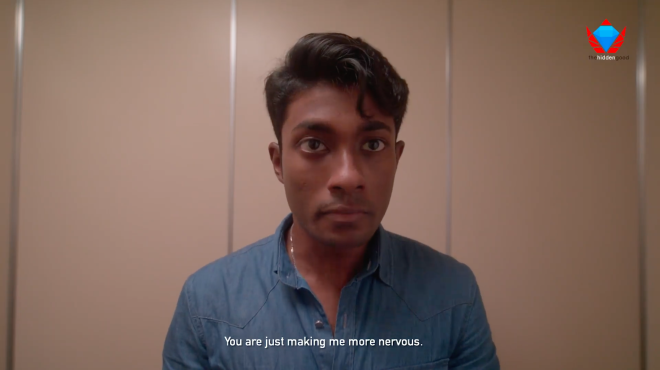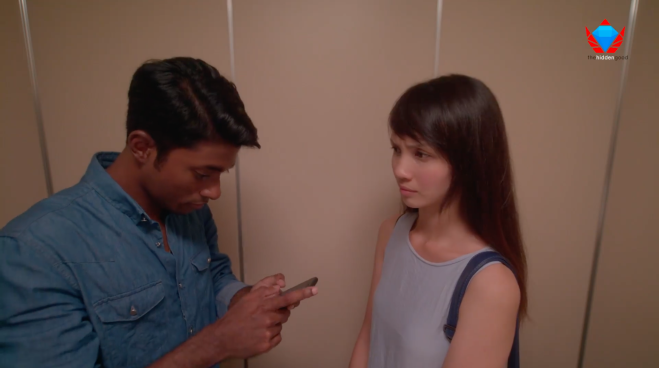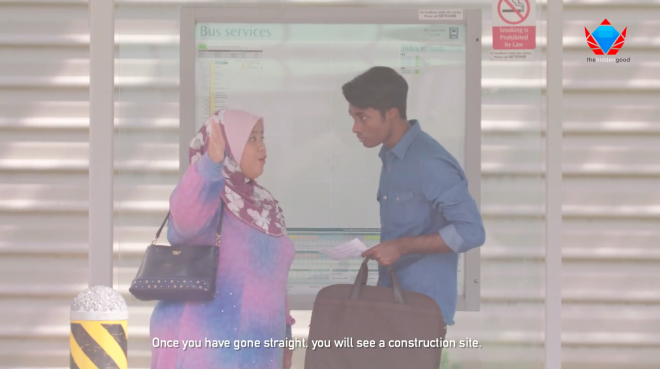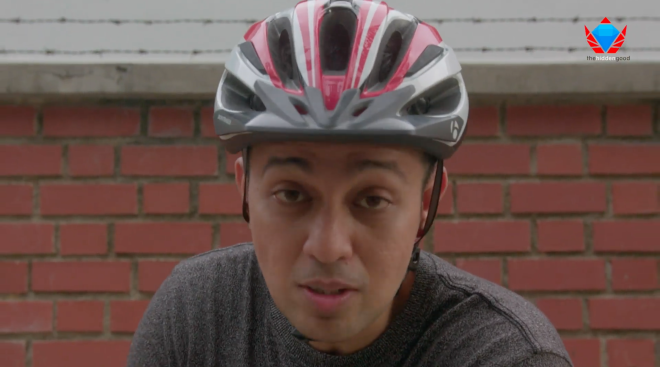Inclusivity
The practice or policy of including people who might otherwise be excluded or marginalized, such as those who have physical or mental disabilities and members of minority groups. (Oxford Living Dictionaries)
The practice or policy of including people who might otherwise be excluded or marginalized, such as those who have physical or mental disabilities and members of minority groups. (Oxford Living Dictionaries)
Do you ever run into pedestrians who seem unaware of their surroundings?
Do you ever feel bothered by how dismissive or odd some strangers appear to be?
Do you ever consider if perhaps they have a sensory disability?
Asia alone is home to 40 million blind people, and more than 25 million Southeast Asians are deaf. These numbers are enough to tell us that deaf and blind people are common in our local communities. However, deafness and blindness are not as noticeable at first sight as most physical disabilities, and this causes people with sensory disabilities to be easily misunderstood by members of the public.
We attempted to raise awareness for this issue in our recent video series! If you have not watched it, here is episode 1!
It is instinctual to reach out to them if you were hoping to help them, but it is also important to remember that you must give them space. Touching or moving their white canes could greatly disorientate and distress them. Instead, let them hold you for support if they need it.

Remember that they are visually impaired when you’re helping them out. You should also offer to read out-loud any needed visual information for them!

For those who are affected by deafness,
This is definitely an important point, especially if the person at hand is trained in lip-reading. Even if they aren’t, it helps them understand that you are trying to communicate with them.

Do not shout because that will more than often distort your face and make it harder for them to understand what you’re trying to say. Speaking in a clear and slow manner will help lip-readers out a lot.

Never forget that you can use your handy device, or even just a random pen and paper, to communicate. It will definitely make things much easier!

With that we leave you a quote from our video’s actor, who also is a volunteer of the SAVH, Ezmond:
I played a deaf and mute person in the short film and feel that it is definitely a struggle for a deaf and mute person to communicate. There is also fear, hesitation and doubtful when trying to convey a message. I feel that we should not judge people very quickly if they behave slightly oddly. We have to be more aware, kind, helpful and understanding to the people surrounding us. Patience is key.
To learn more, check out NCSS’s brochure which gives a wide overview of the different disabilities that people face!
https://www.ncss.gov.sg/Press-Room/Publications/Detail-Page?id=Understanding-Persons-with-Disabilities
All images were taken from The Hidden Good’s “What Do You See” series!
Born hearing, many questioned for Suzana Slemat on her business model – a social enterprise that aims to bring light on the Deaf community in Singapore. But the then 19-year-old Graduate in Business Studies from Ngee Ann Polytechnic is not paying heed – for all the right reasons.
Founded in 2017, Puzzles SG is the brainchild of students Suzana and Shazlina looking to bridge the gap between the hearing and the Deaf. By encouraging students to order in Sign Language and hiring employees who are Deaf, this initiative excited many eager students and piqued the interest of many others into the realm of the Deaf community. When asked about her motivation behind this “aha moment”, Suzana shares, “I often ask myself…What can I do that can impact people positively for the long run? This question triggered the idea of a social enterprise.”
An initiative borne out of a noble deliberation, Suzana’s altruism for social responsibility was unlike any her age. While there are many marginalised communities in Singapore, you’d probably have the same question as we did – why specifically the Deaf community?
“I’ll tell you why..being involved in the Deaf culture is really enjoyable. When one person is talking, all eyes and focus will be on him/her to get the message across. It’s a beautiful and respectful culture that many of the Hearing should experience. At the same time, I want to ease the isolation that the Deaf face by spreading interest in Sign Language.”
Her words hit us hard – there was so much truth there. It hits us that respect in communication has often been trivialised to even points of disrespect in this day and age.

Having to grapple between creating a sustainable business model and impacting a community for a great good, Suzana admitted there were many challenges. One of them was a self-limiting belief that she was “too young”. But what struck us was the fiery passion in her eyes – she’s certainly not caving in to these thoughts.
Have you ever felt your young age is a limit or barrier to your role here?
Suzana: “To overcome my lack of experience in years, I sprint towards any opportunity to listen to the stories and tips that the experienced have. Mentors are an essential resource for us. If there is an opportunity to contribute or make a difference in someone else’s life, there’s your chance. Decide, and follow through. And if that doesn’t work, you learn and grow.”
While there are still many detractors in the road ahead, Suzana’s grit and determination has shown us what it means to channel your passion for a greater good. Her noble quest to ease isolation that the Deaf faces, for one, is indeed a humbling reminder to us in the Hearing world. Speaking beyond her years, Suzana’s inspiring last words certainly left a deep impact in us.
How would you encourage other youths to be a change maker?
Suzana: Instead of asking “why should I”, many in my generation already has the mindset of “why not?”. And that’s a great start already! We have to remind ourselves once in awhile, “Are we okay living in comfort while others are not?”. That leads to the discussion of the definition of comfort according to different people. “Everyone has the potential to be a changemaker. It is not my place to advise other youths, so just do what you’re passionate for, and once you can support yourself emotionally, financially, physically – reach out to those around you and get to know about their life. For me, it’s the Deaf community.”
It is indeed selfless people like Suzana Slemat that truly makes the community a better place. The everyday heroes, right amongst us.
Everyday Heroes is an online series that captures stories of youths creating impact and embracing possibilities to build a more positive community in Singapore. Most importantly, they help stand as positive reminders that doing good doesn’t have to look a certain way!
#EverydayHeroes #TheHiddenGood #sgyouthcares #nycsg